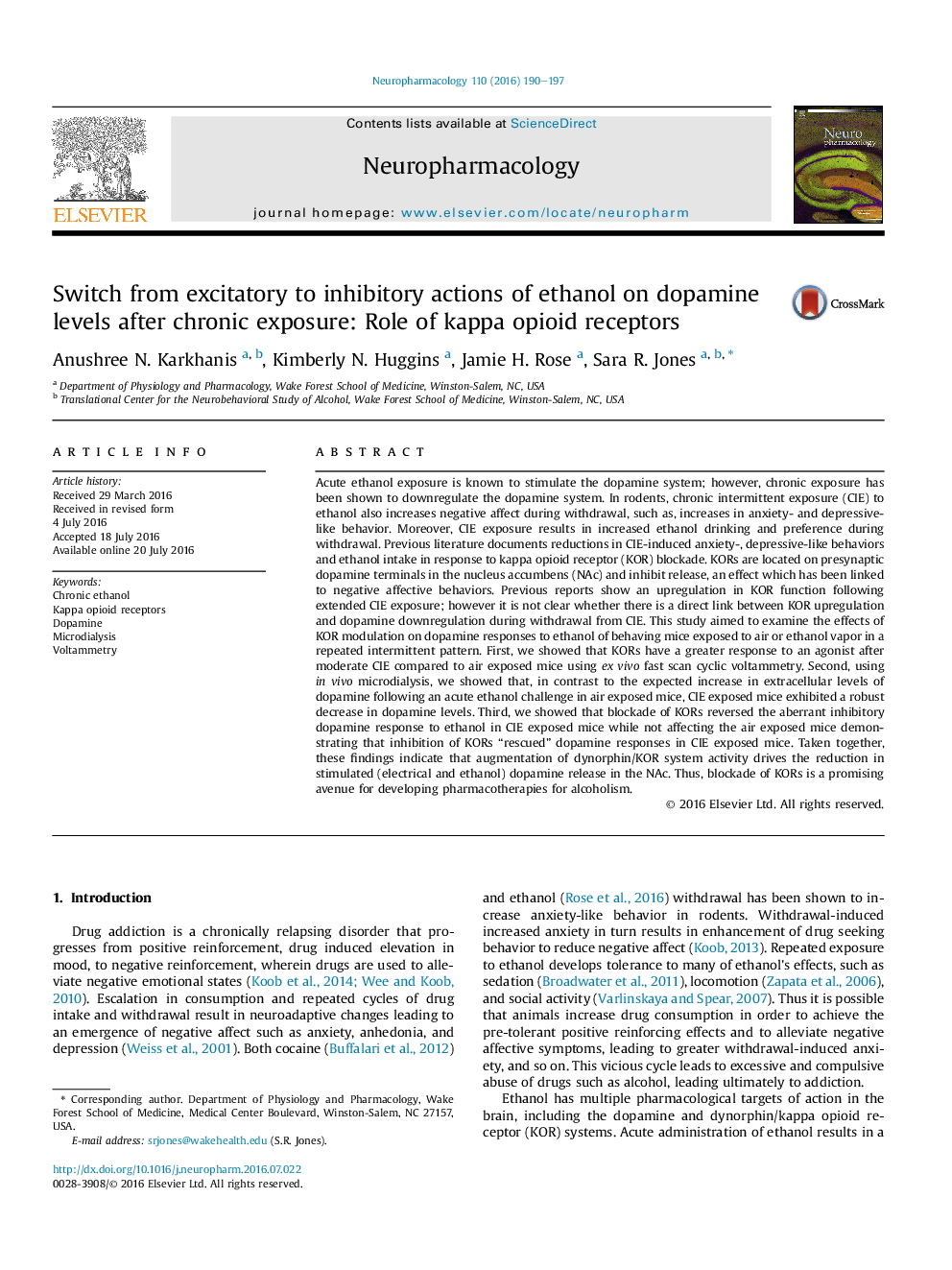| Article ID | Journal | Published Year | Pages | File Type |
|---|---|---|---|---|
| 5549221 | Neuropharmacology | 2016 | 8 Pages |
â¢CIE exposure resulted in increased KOR responsivity, reduced dopamine release and augmented dopamine uptake in the NAc.â¢Acute ethanol challenge reversed dopamine response in CIE vapor exposed mice.â¢KOR blockade normalized this acute ethanol-induced dopamine response in CIE exposed mice, with no change in control mice.
Acute ethanol exposure is known to stimulate the dopamine system; however, chronic exposure has been shown to downregulate the dopamine system. In rodents, chronic intermittent exposure (CIE) to ethanol also increases negative affect during withdrawal, such as, increases in anxiety- and depressive-like behavior. Moreover, CIE exposure results in increased ethanol drinking and preference during withdrawal. Previous literature documents reductions in CIE-induced anxiety-, depressive-like behaviors and ethanol intake in response to kappa opioid receptor (KOR) blockade. KORs are located on presynaptic dopamine terminals in the nucleus accumbens (NAc) and inhibit release, an effect which has been linked to negative affective behaviors. Previous reports show an upregulation in KOR function following extended CIE exposure; however it is not clear whether there is a direct link between KOR upregulation and dopamine downregulation during withdrawal from CIE. This study aimed to examine the effects of KOR modulation on dopamine responses to ethanol of behaving mice exposed to air or ethanol vapor in a repeated intermittent pattern. First, we showed that KORs have a greater response to an agonist after moderate CIE compared to air exposed mice using ex vivo fast scan cyclic voltammetry. Second, using in vivo microdialysis, we showed that, in contrast to the expected increase in extracellular levels of dopamine following an acute ethanol challenge in air exposed mice, CIE exposed mice exhibited a robust decrease in dopamine levels. Third, we showed that blockade of KORs reversed the aberrant inhibitory dopamine response to ethanol in CIE exposed mice while not affecting the air exposed mice demonstrating that inhibition of KORs “rescued” dopamine responses in CIE exposed mice. Taken together, these findings indicate that augmentation of dynorphin/KOR system activity drives the reduction in stimulated (electrical and ethanol) dopamine release in the NAc. Thus, blockade of KORs is a promising avenue for developing pharmacotherapies for alcoholism.
